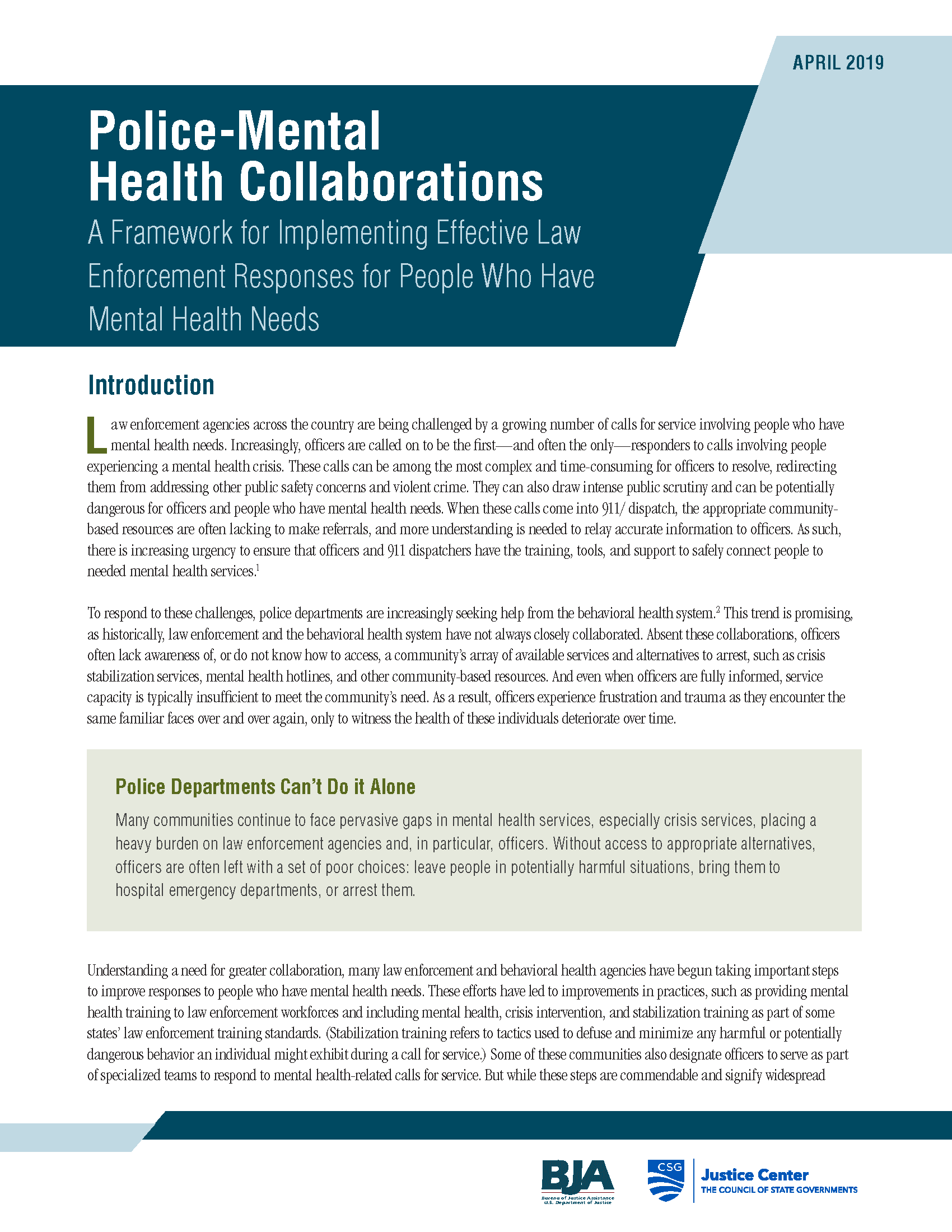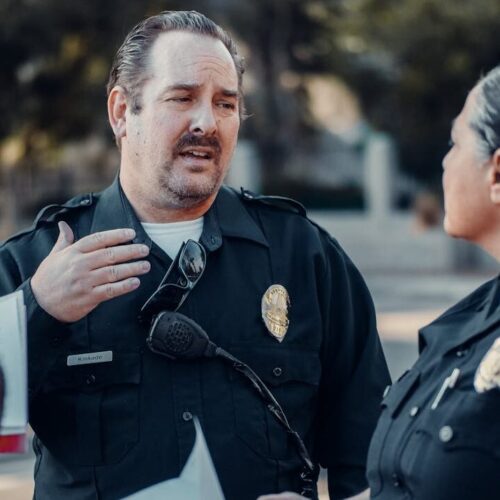Police-Mental Health Collaborations: A Framework for Implementing Effective Law Enforcement Responses for People Who Have Mental Health Needs
Increasingly, law enforcement officers are called on to be the first, and often the only, responders to calls involving people who have mental health needs. To begin tackling that challenge, The Council of State Governments (CSG) Justice Center released a framework to help law enforcement agencies across the country better respond to the growing number of calls for service they receive involving this population.
Police-Mental Health Collaborations: A Framework for Implementing Effective Law Enforcement Responses for People Who Have Mental Health Needs is a publication intended to help jurisdictions advance comprehensive, agency-wide responses to people who have mental illnesses. These responses feature cross-system collaborations between the criminal justice and behavioral health systems. The framework is organized around six main questions that law enforcement executives should consider to be successful in implementing or improving police-mental health collaborations (PMHCs) in their jurisdiction. These questions are:
- Is our leadership committed?
- Do we have clear policies and procedures to respond to people who have mental health needs?
- Do we provide staff with quality mental health and stabilization training?
- Does the community have a full array of mental health services and supports for people who have mental health needs?
- Do we collect and analyze data to measure the PMHC against the four key outcomes?
- Do we have a formal and ongoing process for reviewing and improving performance?
Written primarily for law enforcement executives, and with support from the U.S. Justice Department’s Bureau of Justice Assistance, the framework also highlights jurisdictions that have excelled in each area.
The sharp rise in school shootings over the past 25 years has led school officials across the U.S.…
Read MoreA three-digit crisis line, 988, launched two years ago to supplement—not necessarily replace—911. Calling 988 simplifies access to…
Read More Taking the HEAT Out of Campus Crises: A Proactive Approach to College Safety
Taking the HEAT Out of Campus Crises: A Proactive Approach to College Safety
The sharp rise in school shootings over the past 25 years has led school officials across the U.S. to take a closer look at ways to keep students safe. For Chaffey College in Rancho Cucamonga, California, a tragic incident at a nearby university hit close to home and spurred campus leaders to revisit their own school’s threat assessments and crisis responses.
Read More From 911 to 988: Salt Lake City’s Innovative Dispatch Diversion Program Gives More Crisis Options
From 911 to 988: Salt Lake City’s Innovative Dispatch Diversion Program Gives More Crisis Options
A three-digit crisis line, 988, launched two years ago to supplement—not necessarily replace—911. Calling 988 simplifies access to services when people are seeking help for themselves or loved ones with suicidal thoughts, behavioral health concerns, or substance use-related crises.
Read More Matching Care to Need: 5 Facts on How to Improve Behavioral Health Crisis Response
Matching Care to Need: 5 Facts on How to Improve Behavioral Health Crisis Response
It would hardly be controversial to expect an ambulance to arrive if someone called 911 for a physical health emergency. And yet, for years, the default responders for a behavioral health emergency have been law enforcement officers, not behavioral health professionals.
Read More













